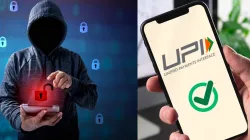Digital Arrest Scams are spreading across India: How criminals impersonate law enforcement to extort money
As digital scams like "Digital Arrest" become more prevalent, awareness and education are critical to combating this menace. By understanding how these scams work and taking proactive steps to protect yourself, you can avoid falling victim to these sophisticated cyber criminals.

With the increasing number of internet users, cybercrime has also witnessed a significant rise in India, understanding the opportunity to loot money from people across the nation. One of the more trending tactics which is being used by cybercriminals is the ‘Digital Arrest Scam’, where scammers impersonate law enforcement officials to extort money from victims.
Let's explore how these scams work, who is being targeted, and how to protect yourself from falling victim.
What Is a ‘Digital Arrest’?
A "Digital Arrest" is a scam tactic where cybercriminals pose as police officers or government officials on video or audio calls. The scammers intimidate victims into believing they are under arrest or investigation for involvement in illegal activities. The criminals use this fear to extort money, threatening legal consequences unless a payment is made. In some cases, they even force victims to stay on video calls to ensure compliance.
How is the scam taking place? Strategy of fraudsters
- Scammers are contacting victims by phone or video call, and claiming that they have received a parcel or message linked to the victim containing illegal goods like drugs or fake passports.
- Sometimes, they also claim that a relative has been involved in a crime activity. Victims are then told that they must pay to clear their name.
- Fraudsters often create fake arrest warrants or deepfake videos of law enforcement officials to convince the victim of the authenticity of the threat.
In extreme cases, victims are subjected to what is known as a "Digital Arrest." Scammers will ask them to remain under surveillance via Skype (Microsoft-owned platform for video calls) or other platforms while they extort money, preventing the victim from seeking outside help.
Who is being targeted?
- Cybercriminals primarily target individuals who may be unaware of how real law enforcement operates, exploiting their fear of legal consequences.
- Educated individuals, including professionals, retirees, housewives and journalists, have even fallen prey to this kind of scam and lost thousands of crores of money. In many cases, the scam begins with a small amount being requested, but once the criminals know the victim believes the story, they ask for more substantial payments.
How to keep yourself and your loved ones safe from such kinds of scams?
Recognize the Signs
Your presence of mind is a must, and do not believe in anyone’s random call. If someone claiming to be a law enforcement officer contacts you via video call or phone and asks for money, it is almost certainly a scam.
Real law enforcement agencies never demand money over the phone or through video calls.
- Do not share any personal information from your end
- Avoid giving personal information like bank details
- Do not answer sensitive questions from unknown callers
- Scammers have been using this information to further intimidate or extort the user.
Report suspicious activity
- If you receive such a call, immediately report it to the authorities through the cybercrime helpline (1930) or the National Cyber Crime Reporting Portal (cybercrime.gov.in).
Seek help immediately
- If you are being threatened or blackmailed, contact local law enforcement and avoid staying on the video call.
- The longer you remain under their control, the more likely it is that scammers will manipulate you into paying larger sums.
ALSO READ: Dyson Big Ball vacuum cleaner launched under Rs 30,000 just ahead of Diwali